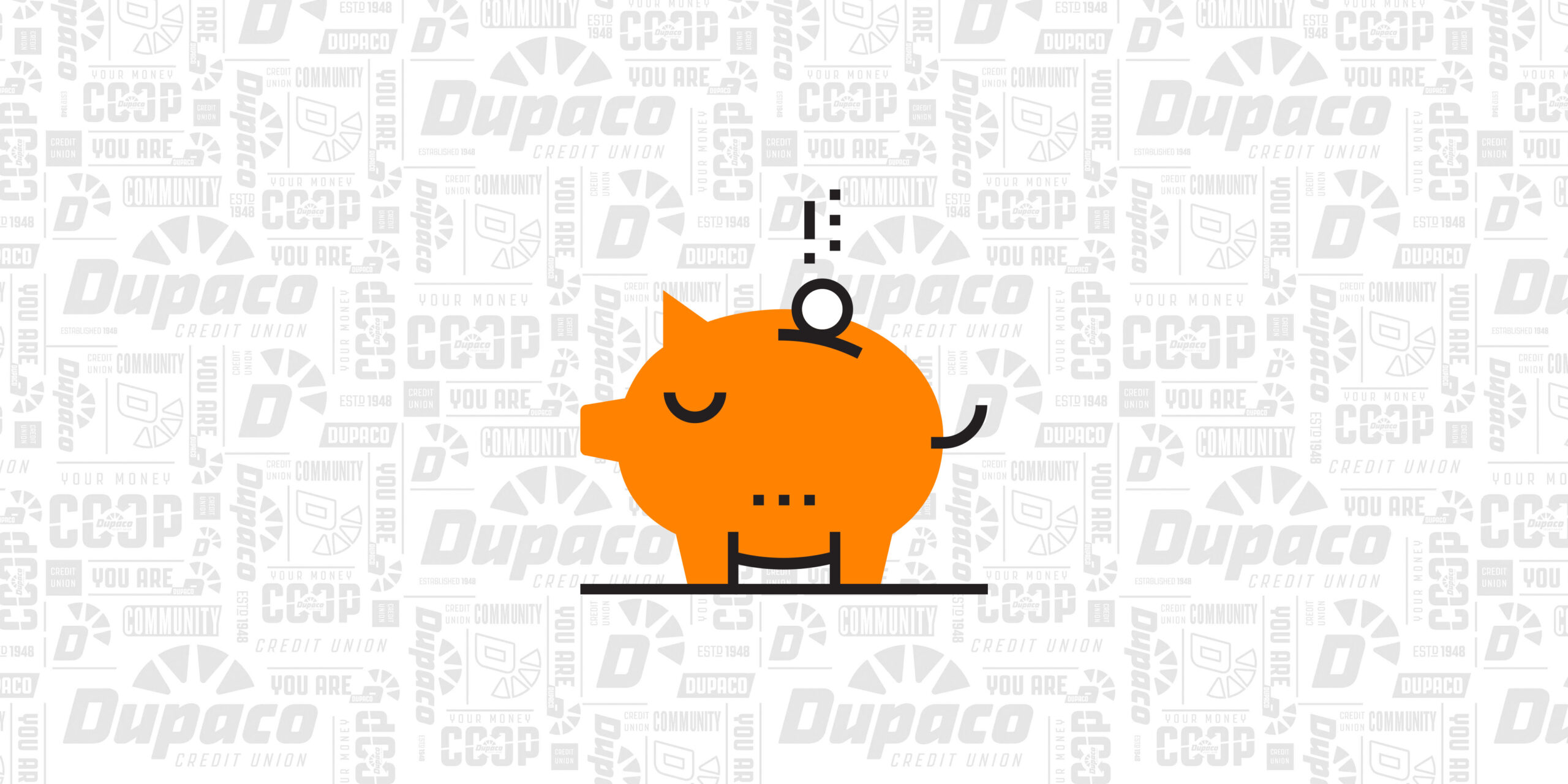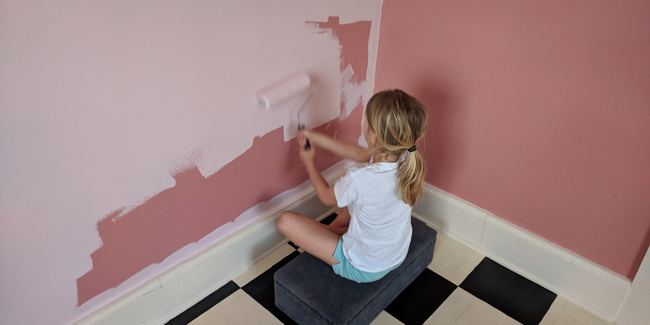
4 smart practices that could help you live with less debt
With plans to upgrade to a larger house, Dupaco Credit Union’s Tammy Wood and her husband struggled to find the perfect home that was worth the larger mortgage.
So, the couple abandoned their plan and decided to do the exact opposite.
Instead of buying bigger, the Woods decided to downsize into a smaller house—allowing them to pay off their student loans and other debt.
“That was an idea I could get behind,” Wood said.
The Woods sold their family’s large ranch-style house and acreage and bought a home less than half its size that cost $110,000 less.
“We sold a lot of stuff—I mean a lot of stuff,” Wood said. “I thought it would be awful living in a smaller house. You don’t have as much of your own space, but it’s actually very freeing. We have all the things we need.”

Wood’s daughter, Hayden, paints her new room. (T. Wood photo)
With the average American household carrying $137,063 in debt, many consumers might be living beyond their means, according to a USA Today story. But it is possible to live debt-smart. Here are some money-smart practices that can help you live with less debt:
|1| Make saving a habit
When you regularly save, you have money ready for the unexpected things that pop up. If you haven’t already, consider establishing a You-Name-It Savings account for emergency savings. Regularly set aside money in the account so you eventually have enough savings for you to live on for three to six months. Start small, with something like $5 or $10 a paycheck, and build from there as you are able.
“If the water heater goes out, you have that savings there and don’t have to add to your debt,” Wood said. “You want some reserves to handle those little things so you’re not putting your financial plans you’re working toward into havoc.”
|2| Buy used vehicles
When you drive a vehicle off the lot, it’s already worth less than what you paid for it. That’s why debt-smart people will buy a newer used vehicle, Wood said.
Purchasing a used car allows you to get a smaller loan for a shorter term, in turn allowing you to keep more of your money.
“We all need a car. It’s just the reality,” Wood said. “But getting the right car at the right terms is what’s most important.”
|3| Avoid payday lenders
It can be easy to fall into a cycle of payday loans. They’re easy to get, but they’re hard to escape. There are other options, though.
A free Dupaco Credit History Lesson can help you review your credit and possibly consolidate debt into a home equity line of credit or personal loan, both of which carry lower interest rates and more reasonable terms than payday loans.
“Being 100% debt-free is attainable, but it’s not easy for everyone,” Wood said. “Being educated about the debt decisions you’re making is what it comes down to, and we’re always willing to have conversations about what is a good debt to get into and what isn’t.”
|4| Consider what truly makes you happy
“We do as a society spend more than needed to keep up with the Joneses,” Wood said. “When you realize you don’t have to do that, you discover what truly does make you happy.”
Budget for the things that make you happy, and forget about the rest.
For Wood, she’s realizing her dream no longer includes living in a huge house. She’s made thousands of dollars selling possessions she no longer has room to store in her smaller home. And she’s OK with that.
She believes it’s also been a good experience for her children, who are learning to appreciate things a little more.
“Now, if I get a shirt, I’m thinking what shirt am I getting rid of? Because it can’t all fit in my closet,” she said. “It’s freeing. You don’t realize how much the stuff and the things weigh you down.”


